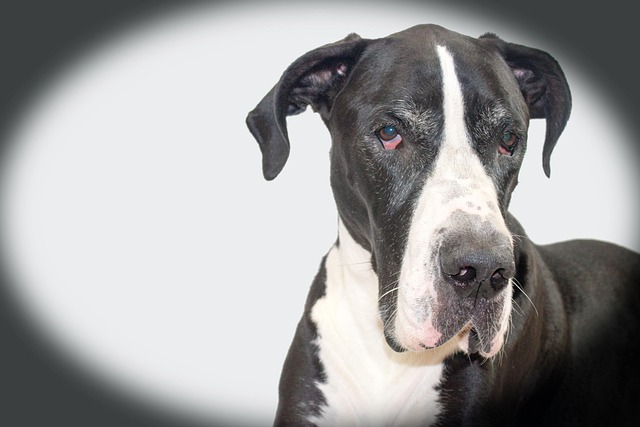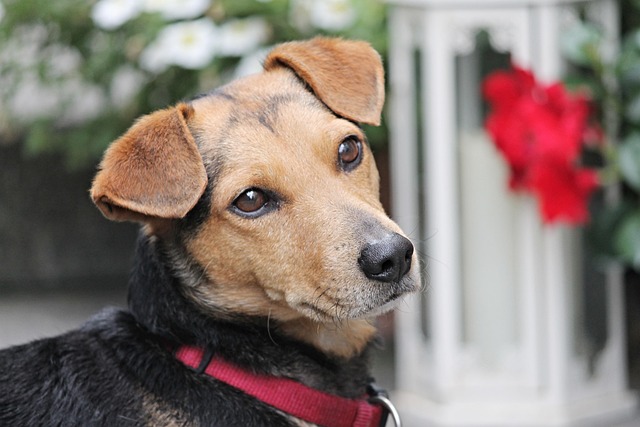
Will pumpkin help a dog pass obstruction?
When a dog that is usually lively and active suddenly loses its appetite, becomes listless, or even vomits frequently, every pet owner will be worried that it is intestinal obstruction, a "health killer".
When we have to leave home and leave our dog alone due to various affairs in life, the dog's separation anxiety is like a heavy stone weighing on our hearts. We feel both heartbroken and helpless watching dogs become restless, bark incessantly, or engage in behaviors such as damaging furniture or defecating everywhere due to our departure. When searching for ways to alleviate separation anxiety in dogs, many owners may think of dog cages. So, can dog cages really alleviate dogs' separation anxiety?
To explore whether dog cages can alleviate separation anxiety in dogs, it is necessary to first delve into the root causes of separation anxiety in dogs. Dogs, as social animals, establish a deep emotional bond with their owners and consider them as crucial members of their "group". When their owners leave, they will fall into feelings of loneliness, fear, and unease. If there is a lack of sufficient solitude training during the puppy stage, the dog will find it difficult to adapt to being alone at home as it grows up; Dogs that have experienced trauma such as abandonment and abuse often have more severe separation anxiety.
From both theoretical and practical experience, a suitable dog cage can indeed alleviate dogs' separation anxiety to a certain extent. For dogs, a comfortable dog cage can become their 'safe nest'. A dog cage provides a relatively enclosed and narrow space for dogs, similar to the cave they search for in the wild, giving them a sense of security. When dogs feel uneasy, they instinctively seek a place to hide, and dog cages perfectly meet this need. For example, when there are noisy noises or unfamiliar environments that make dogs feel scared, they can hide in the dog cage and calm their emotions in this familiar and safe small space.
Placing the dog in a dog cage when the owner leaves the house can allow the dog to move around in a limited space and reduce destructive behavior caused by anxiety. If a dog wanders around and gnaws on furniture due to separation anxiety during free activities, and is locked in a dog cage, these behaviors will be restricted to a certain extent. Meanwhile, dog cages can also help dogs establish regular lifestyle habits. Fixed rest and activity spaces allow dogs to know when to rest and when to play, and this regularity helps alleviate their anxiety.

However, not all dog cages can alleviate separation anxiety, and improper use may even exacerbate the anxiety of dogs. Firstly, the size and comfort of the dog cage are crucial. The dog cage should not be too small, otherwise it will make the dogs feel depressed and cramped, affecting their normal activities; But it should not be too large, as a large dog cage can make the dog feel insecure. A soft cushion should be placed inside the dog cage to hold the dog's favorite toys and items with the owner's scent, such as old towels, old clothes, etc., so that the dog can also feel the warmth and familiarity of home in the cage.
Secondly, dog cages should not be used as a tool to punish dogs. If the owner always puts their dogs in a cage after they make mistakes, the dog will develop feelings of fear and disgust towards the cage. When the owner leaves the house and locks the dog in a cage, the dog will associate this negative emotion with separation, thereby exacerbating separation anxiety.
In addition, we cannot rely solely on dog cages to solve the problem of separation anxiety in dogs. In daily life, it is necessary to strengthen the socialization training of dogs, allowing them to gradually adapt to temporary separation from their owners. For example, starting from a young age with brief separation exercises, gradually extending the time of departure, so that dogs understand that their owners will come back after leaving. At the same time, before the owner leaves, you can leave some interesting toys for the dog, such as spill balls, chew glue, etc., to distract their attention and relieve anxiety while playing.
Every dog is a precious companion in our lives, and their joys and sorrows touch our hearts. When dogs suffer from separation anxiety, we need to understand them with our hearts and help them in a scientific and caring way. A dog cage may be an effective way to alleviate separation anxiety in dogs, but more importantly, we need to provide dogs with sufficient companionship, patience, and love. Let's work together to help dogs overcome separation anxiety, allowing them to live healthy and happy lives under our care, and accompany us through every beautiful day.

When a dog that is usually lively and active suddenly loses its appetite, becomes listless, or even vomits frequently, every pet owner will be worried that it is intestinal obstruction, a "health killer".

When we caress the furry ears of dogs and enjoy the warm moments of cuddling up with each other, our hearts are filled with happiness.

When we see the dog frequently shaking its head, scratching its ears, and even having red and swollen ears with an unpleasant smell,

When we pick up the scissors and prepare to trim the hair of our furry babies at home, we are full of expectations and a little nervous. Looking at the trusting eyes of the dogs, we all hope to create a comfortable and beautiful look for them.

When the dog was found squatting in the corner, struggling hard but unable to excrete feces, its lively eyes were filled with discomfort and helplessness,

Watching the dog lying weakly on the ground due to diarrhea and vomiting, with its originally lively eyes losing their luster, every owner's heart feels as if it's being tightly gripped.